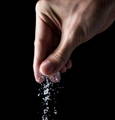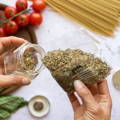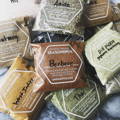MSG: The Controversial Flavor Enhancer's Journey

The History of MSG:
MSG was first isolated in 1908 by Japanese chemist Kikunae Ikeda from seaweed broth, where he identified the umami flavor—one of the five basic tastes, alongside sweet, sour, salty, and bitter. Umami, which translates to "pleasant savory taste" in Japanese, is a flavor that has been cherished in Asian cuisines for centuries.
MSG occurs naturally in many of the foods we love. It’s derived from glutamic acid, an amino acid found in everyday ingredients like tomatoes, cheese, mushrooms, shrimp, soy sauce, walnuts, grape juice, and even breast milk. These foods owe their rich, savory taste to the natural presence of glutamates. When used as a seasoning, MSG enhances these flavors, bringing out the umami notes that make dishes deeply satisfying. Far from being a synthetic addition, MSG is a concentrated form of the deliciousness already present in many beloved foods.
Anecdotal Letter Sparks Xenophobia and "Chinese Restaurant Syndrome"
The term "Chinese Restaurant Syndrome" originated from an unscientific letter to the editor published in The New England Journal of Medicine (NEJM) in 1968. Written by Dr. Robert Ho Man Kwok, the letter described symptoms like numbness, palpitations, and general weakness after eating at Chinese restaurants. Dr. Kwok speculated that these symptoms could be due to factors like the cooking wine, the high sodium content, or the MSG in the food. (The NEJM had a long history of comic letters that use medical language to poke fun at common problems. The original letter may have been real, but subsequent follow-up letters carried harmful racial undertones.) If you enjoy podcasts, we recommend this investigation by This American Life on the letter origins.
Regardless of the intent and the anecdotal nature of the letter, it sparked widespread media coverage, leading to health panic and the unfortunate usage of the term "Chinese Restaurant Syndrome." This label spread fear about MSG, unfairly targeting Chinese cuisine (even though MSG occurs naturally in many of our favorite foods). However, the stigma created by that letter has lingered, influencing perceptions to this day.
By offering MSG in our organic spice shop, we aim to help normalize its usage and celebrate its role as a key ingredient in cuisines around the world.
Is MSG Safe?
Yes, over the years, extensive scientific studies have shown that MSG is safe for everyone, including children and pregnant people. In the 1990s, the FDA categorized it as safe in typical amounts, and the symptoms described in the letter have not been supported by research. MSG is safe and naturally occurring— it’s found in many foods you already enjoy! The Joint FAO/WHO Expert Committee on Food Additives lists MSG as “ADI not specified.” ADI is the acceptable daily intake of a food additive over a lifetime without adverse health affects. "ADI not specified" is assigned to additives with very low toxicity with no explicit upper limit of intake in a normal diet. A "normal diet" is defined as up to 14 mg per pound of body weight — or 2.1 grams for a 150-pound person. For people who regularly use MSG, the average intake is 0.55 grams a day.
Some customers have expressed concerns, calling MSG toxic and that it's irresponsible for us to sell it at Gneiss Spice. Scientific studies do not support this, and we won't perpetuate xenophobic myths about MSG. Just as with salt, which is harmful in excess, it's important to use MSG mindfully. If you believe MSG affects you, trust your body and make the choice that feels right for you.
Interesting Facts About MSG:
Natural Occurrence: MSG is derived from glutamic acid, an amino acid found naturally in many foods like tomatoes, cheese, and mushrooms. It's in many of the foods you already love!
Enhancing Flavor: MSG is a potent flavor enhancer that works by amplifying the savory notes in dishes. It’s called the "umami bomb" because of its ability to make food taste richer and more satisfying.
Scientific Backing: Numerous studies, including those from the FDA and WHO, have confirmed that MSG is safe for consumption in normal amounts. It's no more harmful than table salt.
Lower Sodium Content: MSG contains two-thirds less sodium than regular table salt. This makes it an option for those looking to reduce their sodium intake without sacrificing flavor.
No Gluten: Despite the name, monosodium glutamate does not contain gluten.

How to Use MSG in Your Cooking
Soups and Stews: Stir in 1/4 tsp of MSG to your tomato-based soups or stews at the end of cooking to enhance the savory depth of flavor.
Seasoning Meat: Add a pinch of MSG to your rubs or marinades for meat. It works wonders with grilled chicken, steak, or even roasted vegetables.
Savory Snacks: Sprinkle MSG on popcorn, roasted nuts, or even French fries for a delicious umami kick.
Simple Recipe Idea: Sprinkle a pinch of MSG on your next egg or sliced tomato and see if you can taste the difference.
Gneiss Spice x MSG: More Sustainable Packaging and Smaller Quantities
When we surveyed our audience about offering MSG, there was an enthusiastic response, as MSG can be hard to find in communities without an Asian grocery store. Plus, it's usually packaged in plastic and sold in 1pound quantities. Using our compostable packaging refill service, we can give shoppers a more eco-friendly way to add this umami-bomb to their pantry.
Read More:
Questions and Answers on Monosodium glutamate (MSG) by U.S. Food & Drug Administration shares their standards.
Extensive use of monosodium glutamate: A threat to public health? discusses health risks when using six times the normal intake.
How Racism Fuels Myths That MSG Is Unhealthy by University of Washington Medicine talks about the history of MSG aversion in the US.
MSG Is A-OK: Exploring the Xenophobic History of and Best Practices for Consuming Monosodium Glutamate in the Journal of the Academy of Nutrition
and Dietetics
Uptaking Race: Genre, MSG, and Chinese Dinner by Jennifer L. LeMesurier Colgate University discusses the letters that sparked the controversy.







